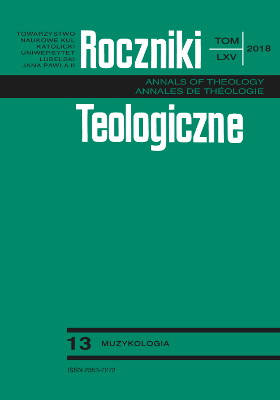Kult eucharystyczny na podstawie średniowiecznych mszalnych rękopisów węgierskich
The Eucharistic Tradition on the Basis of Hungarian Medieval Mass Manuscripts
Author(s): Rastislav AdamkoSubject(s): Christian Theology and Religion, Theology and Religion, Pastoral Theology
Published by: Towarzystwo Naukowe KUL & Katolicki Uniwersytet Lubelski Jana Pawła II
Keywords: Eucharistic worship; Middle Ages in Hungary; Gregorian chant; Manuscripts
Summary/Abstract: Eucharistic worship was significantly developed in the 11th and 12th centuries as a reaction to theological disputes. The establishment of the Feast of Corpus Christi in 1264 became the culmination of, and at the same time confirmation of the adoration tendencies in the Eucharistic tradition. In the Middle Ages, Košice was a well-known pilgrimage destination throughout Central Europe. One could see here the relics of the Lord’s Blood as evidence of the Eucharistic miracle that took place in Košice. On the basis of the Eucharistic miracle, there is a mention in the papal bible from 1402, in which Pope Boniface IX granted appropriate indulgences to Košice. Eucharistic worship during the Middle Ages in Hungary was very widespread and alive. This is evidenced by the preserved liturgical and music books regarding the celebration of the Eucharistic liturgy. We find in them numerous innovations of the Mass form by introducing new songs – alleluia verses and tropes, and adaptations of melodies other than those in Western and neighboring Central European countries. Separation and independence of the Ostrihom’s tradition (and possibly smaller so-called peripheral traditions), also manifested itself in a different selection of psalms and texts as well as in numerous textual and melodic variants.
Journal: Roczniki Teologiczne
- Issue Year: 65/2018
- Issue No: 13
- Page Range: 7-23
- Page Count: 17
- Language: Polish

